Torchbearer by nomadotto
Introduction
Original SA post Torchbearer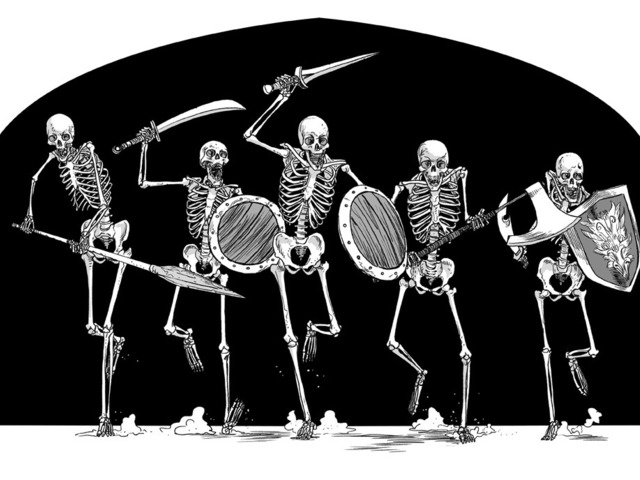
Welcome to the other bone zone!
( Pre-Introduction )
Torchbearer. Torchbearer is a really odd duck, as far as games go. Which makes sense, both because of what it's trying to do and because of who made it. The second part is simple: Torchbearer is an RPG by Thor Olavsrud and Luke Crane.
It's very heavily based off of Burning Wheel and Mouse Guard (both by Luke Crane), both of which are really interesting games, one of which has been discussed before. The thing that makes both games so fascinating, at least to me, is how successful they are at creating a sort of portentousness and ritual. To be slightly clearer, they are games that speak in Capital Letters when discussing Items of Merit, and Have Strong Opinions about making sure your Characters are Real People. This is accomplished in a large part by putting in lots of funny (read: fiddly and annoying) rules about things like characters needing to have shoes and hometowns, and friends, family, and things like that. It really helps to make your characters feel alive.
Torchbearer is about that. Torchbearer is also about being lost in a dungeon and knowing exactly how far you are away from running out of food and torches, at which point you are very likely going to die. It's a game about trying to figure out if you can leave behind your wineskin so you can carry that extra bit of treasure to the surface. It's a game where being good at singing and cooking and riddling can be more important than being handy with a sword. It's a game about the Red Box D&D you remember, or heard stories about, when Elf was a class, wizards had random spells, and players cowered in fear from a patrol of Orcs.
Alright, enough nonsense, let's start actually talking about the game. I'm going to follow the structure of the book, because that's how it's designed to be read. This is really annoying if you're trying to make a group of characters for a one-shot (which the book specifically says not to do) and you need to make sure you didn't fuck up the math. This is also far from the last annoying thing, because the whole book is written like every other Luke Crane-inspired book, which is alternately wonderful and frustrating. The basic structure is
Introduction
Building Characters
Dungeons
Resting (huh? That's a whole section?)
Advancement
GM Stuff
Introduction (before I get side-tracked again)
The very first subsection is a basic overview of the world that torchbearer takes place in. It's short, and outlines a very standard “points of light” setting. The wilderness is large and inhospitable. People crowd together in walled towns for survival. Heaven is high and the Czar is far away etc.
After that comes the statement of purpose, and perhaps the best summary of the game-
“Torchbearer is a riff on the early model of fantasy roleplaying games. In it, you take on the role of a fortune-seeking adventurer. To earn that fortune, you must explore forlorn ruins, brave terrible monsters and retrieve forgotten treasures.
However, the game is not about being a hero. It's not about fighting for what you believe. The game is about exploration and survival.
You may become a hero. You might have to fight for your ideals. But to do either of those things, you must prove yourself in the wilds.
Because there are no jobs, no inheritance, and no other opportunities for deadbeat adventurers like you. This life is your only hope to survive this world”
Inspiring stuff, no?
After that, there's the standard stuff about what is a roleplaying game, the structure of the book, terminology etc. A couple of quick notes-
-
1) Rolls are called tests (as in, test skill X means roll Xd6)
2) The story is going to come out of the game, rather you you having a story to tell at first
3) Don't be a jerk to other players
4) Say, “I do X”, rather than “I want to test X”
+/- 1s = Plus or minus one success.
+/- XD = Plus or minus X dice.
Reroll 6s= Every time you get a six, you get another dice. This only happens on certain abilities.
Margin of Success/Failure = Number by which you exceeded (or were short) of the obstacle. If you hit the obstacle, that's a tie.
With that stuff taken care of, we're on to the character making chapter. To try to encourage people to read and reply to this, everyone vote for Stock/Class and a name. For the first, Your choices are
Human/Warrior
Human/Magician
Human/Cleric
Halfling
Dwarf
Elf
I'll figure out the winner and post the next set of character questions when I get to the next section: More Terminology (Character Edition).
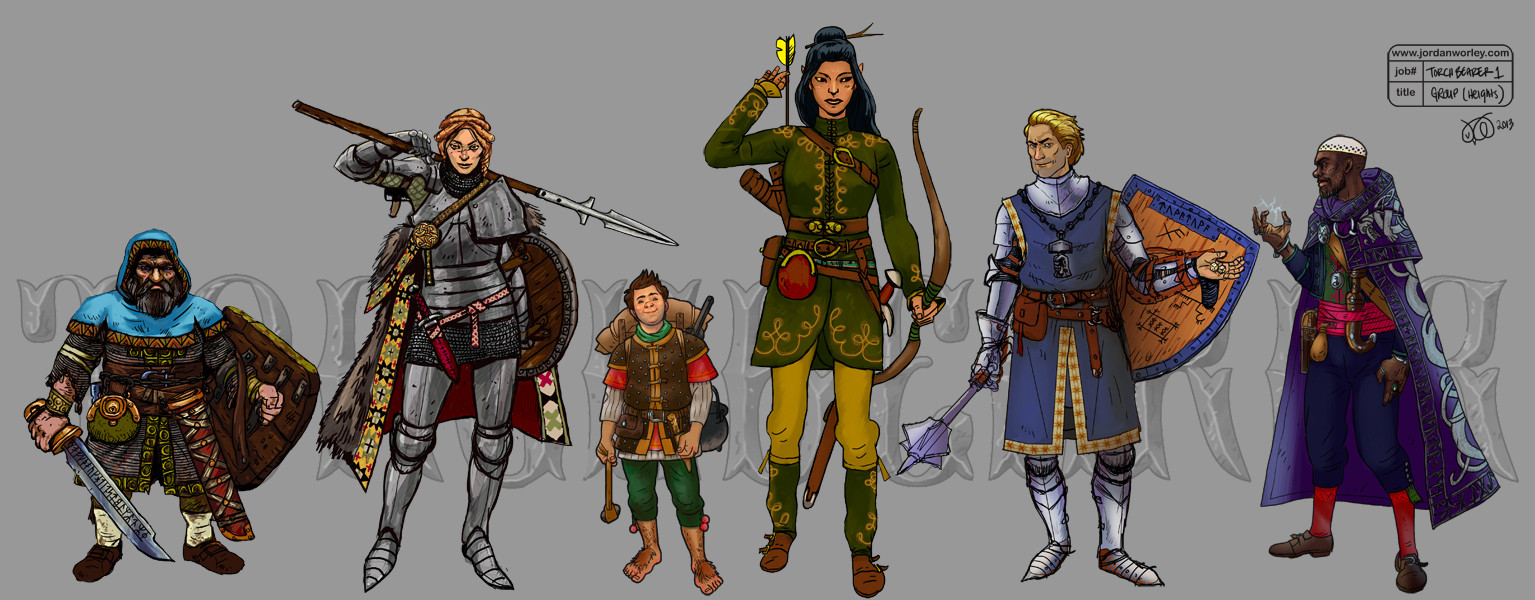
The iconic Torchbearer characters, from left to right:
Dwarf, Warrior, Halfing, Elf, Cleric, Magician
Character Terminology
Original SA post Torchbearer Episode 2: The Quest for More MoneyCharacter Terminology
This is a long and boring section that defines the areas of the character sheet. This section works a lot better if you have a character sheet to refer to, but because of
 you're going to have to deal.
you're going to have to deal.
In addition to the standard array of
Name :
Stock : (race, but less racisms)
Class :
Age :
Level : goes from 1 to 5 for right now
Alignment : Law (I don't lie, follow the rules, and have a stick up my butt), Chaos (screw the rules, I'm too awesome) and Unaligned (I don't care)
you have fun stuff like
Home : (this has a game effect)
Raiment : a one sentence description of a notable piece of clothing
Parents : (also has a game effect)
Mentor : (This matters too?!?!)
Friend : (it's good to have friends, and they provide game benefits as well!)
Enemy : (more mechanical stuff?)
Allies and Enemies : no game effect here, but a way to keep track of friends and foes.
And even more fun stuff like
Belief : A short driving philosophy. Following your beliefs is how you level up
Goal : This is your current mission, you get to choose it, and if you accomplish it, you'll earn points towards leveling up
Instinct : This is an action oriented macro, unique to your character. For example, “If I'm in trouble, I draw my sword” or “I always double-check locks for traps” or “Never trust an elf.” Instincts have a bunch of really neat benefits, including earning points towards leveling up, allowing for “free” rolls of the dice, and creating hilarious situations.
Traits : These are sort of like aspects in FATE core, in that they help (and hurt) your character and help to describe them. Unlike FATE, the range of traits is a little bit smaller (so Courageous is ok, but Last Survivor of the Wu Tang Clan is not). You need to use your traits to get “checks,” which allow you to recover when you rest. No more 15 minute adventuring day!

I wonder what that was? Anyway, we've got some bookkeeping stuff
Fatigue and Recovery Factors : Heavy armor, spell casting, and carrying lots of loot will tucker you out, making it harder to recover from fatigue
Rewards : the points your earn from your beliefs and goals go here. You spend them sorta like fate points, and after you spend so many, you get a level up!
Inventory : the complete list of everything you are carrying, organized by where. Each item takes up 1 or more slots. Your belt, for example, has a pouch holding 1 thing, a sheath for your weapon, and a skin for water or wine, while your backpack (if you have one) has just 6 slots to use however you want, and if you want to carry something else, you have to find space for it
Level Benefits : Every time you level up, you write down what you get here. Level 1 characters have 1 benefit
Spells and Prayers : You memorized spells and prayers. You also have a traveling spell book, which holds 5 levels of spells. These are all the spells you can refresh in a dungeon.
A Lifestyle Tracker : If you survive to get back to town, this keeps track of the money you're spending, so you can settle up (or try to dodge your creditors) before you head back to the wilds
Armor rules , Camp Procedure , and lots of text that will get explained again later
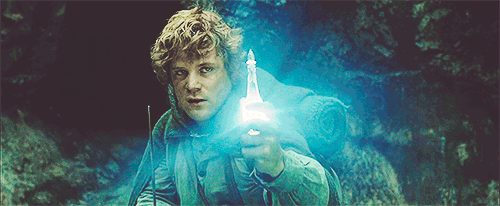
After that silly interruption, the the math stuff:
Conditions : This is your “HP” tracker. Rather than keeping track of points, you have a “ladder of woe” starting with
Fresh -> Hungry and Thirsty -> Angry -> Afraid -> Exhausted -> Injured -> Sick -> Dead
As you go through your adventure, you will tend to accumulate these. Another important point is that it's not a strict “ladder” in that you can have any combination of them, and they all apply (so you can be Angry and Injured , but not Afraid nor Exhausted nor Hungry and Thirsty ). Each rung has problems associated with it, and getting better requires resting and spending a “check”
Abilities- You have four “stats,” Health , Will , Nature and Might
Health is how healthy and strong you are. It goes from 1 to 6,
Will is how mentally strong you are. It too goes from 1 to 6
Nature is very neat. It's a measure of how “Xly” you are, where X is your stock. It goes from 0 to 7 (both 0 and 7 will shortly spell the end for your fortune-seeking adventurer) and it is both rolled and spent over the course of the game. A dwarf, for example, has a nature with the descriptors of “Delving, Crafting, and Avenging a Grudge.” Early on, you're going to rely on your nature a lot.
Might is your place in the great chain of being. Wait, no. It's your place in the food chain. There are limits to the kinds of conflicts you can fight with creatures above you in the order of might. For example, an adventurer (Might 3) can try to kill an owlbear (Might 4), but trying to kill an ogre (Might 5) is a little outside your reach (but you can drive it off). However, if the ogre tries to kill you and you stand your ground, they're putting their own life at risk! I'll talk about this more when we get to combat.
You also have your Wises (knowledge skills) and Skills (other skills).
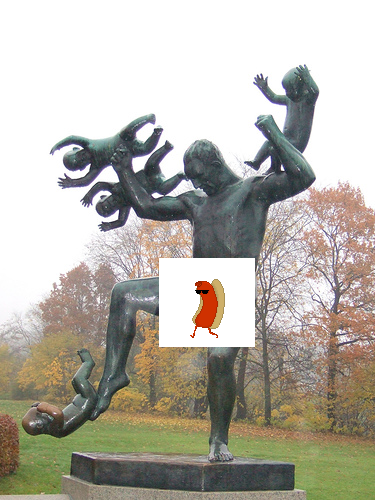
In case you haven't guessed, we're going to be building both a halfling and a warrior, because this lets us show off some fun fight stuff.

Our Halfling will be named Mr. Tumnus
Our Fighter will be named Bradamante
For next time, we need the following things:
-
Where are our dudes from? Pick one of “Dwarven Halls,” “Religious Bastion,” “Bustling Metropolis,” “Wizards' Tower,” “Remote Village,” and “Busy Crossroads.” They can be from different places.
-
What are these folks' social graces? Pick 1 of Haggler, Manipulator, Orator, or Persuader. They can have different graces.
-
What's their specialty? They have to have different specialties. Pick one from:
Cartographer, Cook, Criminal, Dungeoneer, Haggler, Healer, Hunter, Manipulator, Pathfinder, Orator, Scavenger, Scout, and Survivalist. (The overlaps with 2 aren't a mistake, you can double-stack)
Character Generation
Original SA post TORCHBEARERCharacter Generation
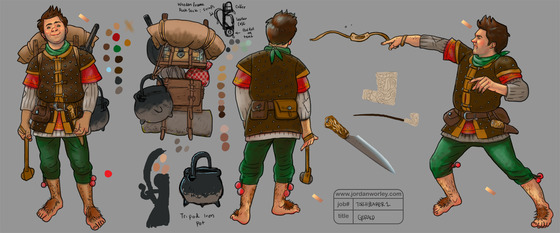
Mr. Tumnus in action
When making a character, there are the mechanical steps, detailed here, and then the “finishing touches,” which will be handled in the next post. Making a character doesn't involve a lot of choices, in comparison to something like Pathfinder or FATE, but for a dungeon-crawler with theoretically disposable characters, it's pretty involved, which is not helped by the way that information is presented. I'm going to follow along with Bradamante and Mr. Tumnus to show how this process goes
For example, the first step is to choose your class and stock (which we did previously). This is followed by a table for the vital mechanical information depending on your stock and class. This is your starting Will and Health, your basic skills and traits. Also included in this table is an entry for weapons and armor. This is not the list of weapons and armor that you start with. Nor is it the list of weapons and armor that you can pick from. Instead, it's the list of all the weapons and armor that you could theoretically use. This is not explicitly spelled out, I had to figure it out myself by looking at later sections. Why is it here? (:lukecrane:)
Mr. Tumnus is a Halfling, which means he's a Burglar. He has 5 Will and 3 Health. He has the following skills-
Cook 3, Criminal 3, Fighter 3, Hunter 2, Scout 2, Scavenger 2. He also gets the trait “Hidden Depths”
Brad is a Human Warrior. She gets 8 point to split between Will and Health, (neither of which can go above 6 or below 2), so I'll give her 5 Health and 3 Will.
She has the following skills-
Fighter 4, Hunter 3, Commander 2, Mentor 2, Rider 2 and the Trait “Heart of Battle”
Since she is a human, she gets another skill at 3 from the list Criminal, Haggler, Pathfinder, Survivalist. I'll giver her Survivalist, since I she her as being rough and outdoorsy. This bonus 3 skill is listed in 1 sentence below the main table and is easy to miss if you're not reading every line. This is particularly annoying because the instructions are to make characters together, with the GM reading from the book and passing it to players, as needed, which is not conducive to close, careful reading.
Next we choose where the characters are from and give them a bonus skill from the list of hometown skills and another trait. If you pick a skill you already have, the rating goes up by 1, which is also true of Traits.
Mr. Tumnus is from the Wizzzzzard's Tower, where he learned how to trash things for cheap, and also some Lore Mastery, which he now has at 2. He also learned not to trust things he reads on the internet, and has developed the “Skeptical” Trait
Brad is from Busy Crossroads. She learned how to Haggle like a champ, and as part of wheeling and dealing, is now a little more “Quick Witted” than the average sort.
The next step is to select social graces, which involves picking a skill and giving it a rating of 2
Tummy McTummerson is a Manipulator, while B. Dawg knows how to make a buck, improving her Haggle to 3
After that, characters pick a specialty skill, which cannot be duplicated through the party. This will also be the profession of your Mentor, should you have one.
M. Tumnus is a Criminal, born and bred, increasing his skill to 4
Bradamante is Hagglin' fiend, bringing her skill up to 4 as well.
The characters then get to pick some knowledges (game parlance: Wises). Humans get 1 wise, while non-humans get 1 wise relating to their stock +1 more wise of their choice. Suck it Hewmooons. You can pic basically antyhing you want to be knowledgable about, but it needs to be limited in scope (so specific place-Wise is good, but Town-Wise is not), and relate directly to the game world (so Plot-Wise is not ok)
Brad is Horse-Wise, while Mr. T is both Home-Wise (as befits a halfling) and Shrewd Appraisal-Wise.
That's enough words and numbers for right now. Next time we'll start talking about Nature, the thing that keeps you alive through the early levels. Also, people should come up with a Belief (1-2 sentence summary of what the character is about) and an Instinct (Short, action-oriented macro, generally using always, whenever, or never)
Character Generation Part 2
Original SA post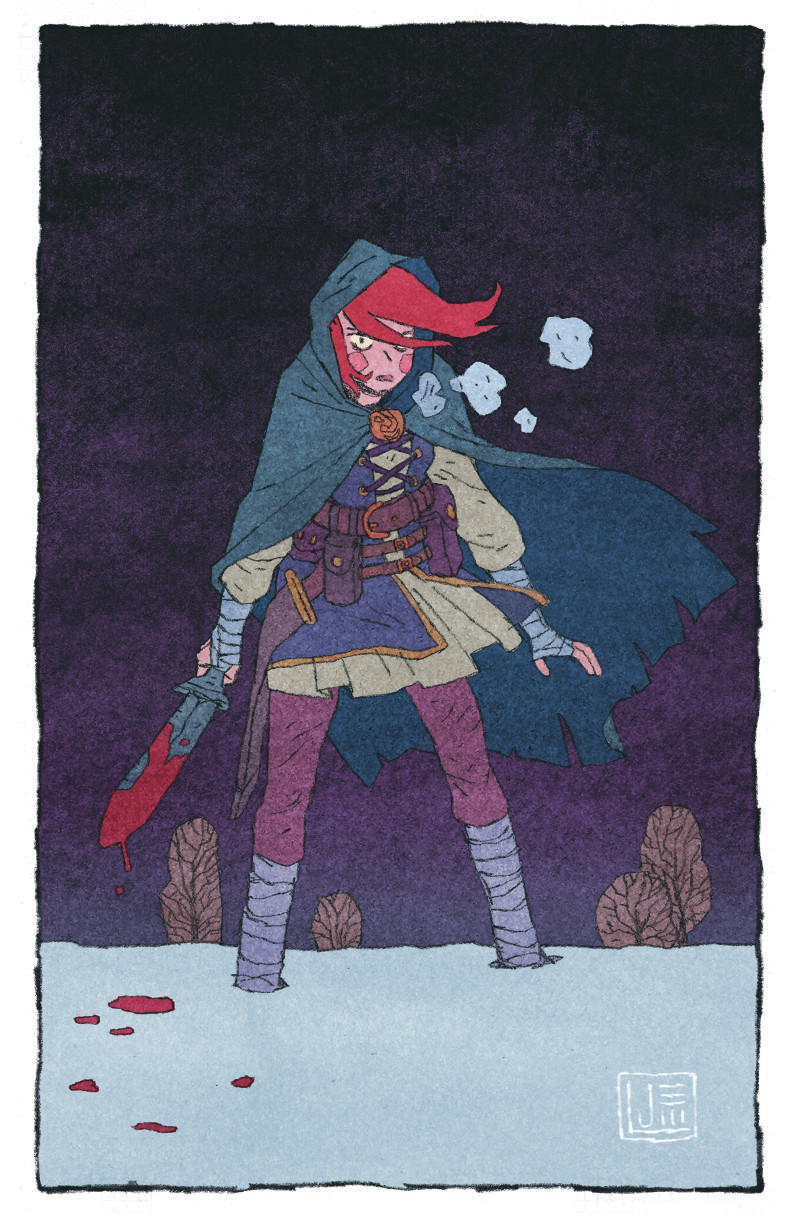
My idea of Bradamante.
More Character Generation
With our long national nightmare of no torchbearer updates ending, we'll jump back into character creation, focusing on the more qualitative parts of the characters. Specifically, we'll going to generate starting Nature scores, our relationships, give everyone their starting equipment, and then move on to beliefs, instincts and goals.
Nature is determined by answering a set of thematic questions which are different for different character stocks. The first thing you do to establish nature descriptors, which are the things that come “naturally” to your stock.
Halflings, like Mr. Tumnus, have a halfling nature. Their descriptors are Sneaking, Riddling, and Merrymaking. These are things that are easy to use your nature for, and will be discussed more later.
After that, you answer a set of questions about your character, giving your your starting nature score. Your nature will be at least 3, which is probably about as good as one of your better skills.
There are three questions for halflings:
Do you eat second breakfast every day?
When confronted, do you stand and fight or run and hide?
Would you rather be safe at home than on this dreadful adventure.
For Mr. Tumnus, the answers are:
Yes (+1 Nature)
Run and Hide (+1 Nature, -1 Fighter)
I rather like adventures (May replace or increase your home trait with Adventurous or Calm, which we will not do)
This gives Mr. Tumnus 5 Nature and -1 Fighter, giving him Fighter 2
Brad, as a human, has a human nature, with the descriptors of Boasting, Demanding, and Running.
The three questions for Humans are:
Do you sit by the hearth at night boasting and drinking, or quietly preparing
Do you demand to be heard as an equal with the dwarves and elves, or do you listen to the wisdom of your elders?
Would you flee and hide from the hordes of monsters that prey upon civilization or do you plunge into their midst for treasure
Brad says:
All drink, all the time (+1 nature)
I demand to be heard (+1 nature, -1 to Loremaster or will)
Run and Hide (+1 nature)
This gives her 6 nature and -1 Will (since she doesn't have loremaster), leaving her with 2 Will
Next we determine their circles and relationships, which gives us a sense of how well they relate to other people, and produces a set of NPCs. These work like nature, in that they ask a series of questions, which we provide answer for, producing mechanical changes to the characters. Specifically, each relationship gives you +1 to circles (unless you're a big jerk, like Mr. Tumnus is), which means you're more “plugged in” to society, and are more likely to be able to find people etc.
We'll start with Mr. Tumnus again.
Do you have friends who enjoy your visits, or are you a loner, tough and cool?
Mr. Tumnus, being a manipulator, tends to piss people off, so we'll say no. This locks his circles at 1, and gives him an enemy, who we will decide is Bargle the Magician, which is the reason why he's not at the Wizard's tower any more. This gives him the Loner trait at 1 and requires his player to get snacks for everyone else while they finish character creation.
Next is Bradamante:
Do you have friends
Sure! Brad is friends with Mr. Tumnus's brother, George, which is why she hangs out with him. This gives her +1 Circles. George also needs a job from the list we chose from for Brad, so let's make him a Healer, that seems useful.
Do you have parents you still talk to?
Yes, her folks will be Jan and Svan. I'm going to assert that at least one culture of humans have a patro/matro-nymic system, so she's now Bradamante Svansdotter. That's another +1 to circles
Do you have a mentor?
Sure! Since Brad is Haggler, so is her mentor is one as well. He (or she) needs a name. We'll say that since Brad is from the crossroads, her mentor is from a different culture, so she'll be Bolormaa, the horse trader. This is one more +1 to circles, giving her 4, which is non-trivial.
There's a rule that's hidden in the description of circles and relationships that you're not allowed to have all of the relationships, so Brad will not have an enemy, but that's ok, Mr. T has that handled!
This bit took a little longer than expected, which goes to show how slow character generation is for a game in which characters are supposed to be “disposable.” Doing this in real time, with everyone having to come up with relationships, can take quite a while, especially for players who aren't used to doing "creative" character generation. Next time, we'll handle equipment!